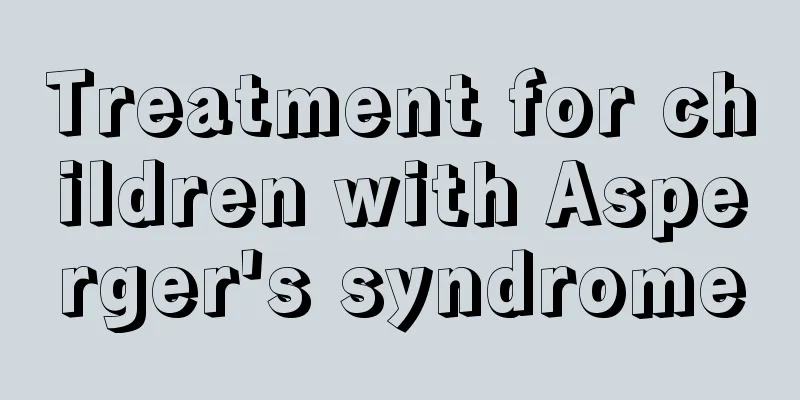What’s wrong with my baby’s cold diarrhea?

|
Children often have various conditions when they are young because they have weak resistance. Diarrhea is a very common phenomenon among children, especially when they are 1 to 2 years old. Many reasons can cause children's stools to become jelly-like. Careful mothers will notice this situation. So what are the reasons for children's diarrhea? What measures should be taken to deal with it? Let me introduce it to you! Reason 1: Since babies aged 1-2 years old grow and develop very rapidly, their bodies need more nutrition and heat energy. However, the digestive organs are not fully developed and secrete fewer digestive enzymes. Therefore, the digestive ability is weak and diarrhea is prone to occur. Reason 2: Since the nervous system has poor gastrointestinal regulation function, any slight change in diet, such as inability to adapt to added weaning foods, too many types added in a short period of time, or too much feeding at one time, sudden weaning; or improper diet, such as eating indigestible protein foods; low temperature and cold body speeding up intestinal peristalsis, too hot weather and reduced secretion of digestive juices, large temperature differences in autumn and easy cold in the lower abdomen, etc., can all cause diarrhea. Reason 3: Due to the low immunity of the whole body and gastrointestinal tract, diarrhea can be caused as long as the food or tableware is slightly contaminated; babies are prone to respiratory infections due to their low resistance, and diarrhea can often occur when they suffer from colds, pneumonia, and otitis media. The stool of breastfed babies is soft, golden yellow in color, with uniform consistency, shaped like soft butter, occasionally thin and slightly green, sour but not smelly, and the average bowel movement is one to four times a day. If you have four to five bowel movements a day, or even seven to eight times, but are generally in good condition and have gained weight, this cannot be considered pathological. Traditional treatment for diarrhea advocates that the child should fast for a period of time. However, this will hinder the body's nutritional supplementation and may easily lead to malnutrition. It is now recommended that babies with diarrhea should not be fasted, but they should follow the principle of small and frequent meals and eat at least 6 times a day. Breastfed babies continue to drink breast milk, but the mother's diet should be lower in fat, otherwise it will aggravate diarrhea; babies who are bottle-fed within 6 months can drink milk in normal amounts; babies over 6 months old who have already started weaning foods can eat some easily digestible foods, such as porridge, soft noodles, minced fish, a small amount of vegetable puree, fresh fruit juice or banana puree, until 2 weeks after the diarrhea stops. If the child's diarrhea symptoms are relatively mild, you can adjust the diet and let the child eat less food. If the child is relatively young, it is best not to add complementary foods during the diarrhea period. Wait until the child's diarrhea symptoms disappear, and then gradually resume a normal diet. If the child's diarrhea symptoms are more serious, it is best to see a doctor in time, because severe diarrhea can easily cause dehydration in children. |
<<: What are the dangers of insufficient sleep for children?
>>: What should I do if my child suffers from memory loss?
Recommend
Symptoms of Japanese encephalitis caused by mosquito bites
In our lives, there are many Japanese encephaliti...
What should a three-year-old learn?
Every baby is active, this is their nature. The I...
What is the cause of baby melanin nevus
Melanoma moles are something we often see in our ...
What are the symptoms of high lead levels in children?
Lead is a heavy metal. If the lead content in a c...
Can hemiplegia in children be cured?
Hemiplegia is a common disease among children. It...
How to prevent jaundice
Some parents will find jaundice on their newborns...
Treatment of rash after baby's fever subsides
Nowadays, it is not uncommon for babies to develo...
Do decayed teeth need to be extracted?
Many of our friends have tooth decay due to lack ...
Is it good for babies to drink chrysanthemum crystal when they have internal heat?
Now our living conditions have improved. We no lo...
Treatment methods for cerebral palsy in children
Have you ever met someone who is slow to react or...
How to treat children’s itching at night?
If a child feels itchy at night, he or she will b...
Can baby's cerebral hemorrhage be cured?
For middle-aged and elderly people, cerebral hemo...
Newborn baby not sleeping at night
Many parents may find that their children do not ...
What is the cause of hydronephrosis in children?
Hydronephrosis is a common disease in children, b...
Baby's ear has scabs
Infancy is the most critical period. At this time...









